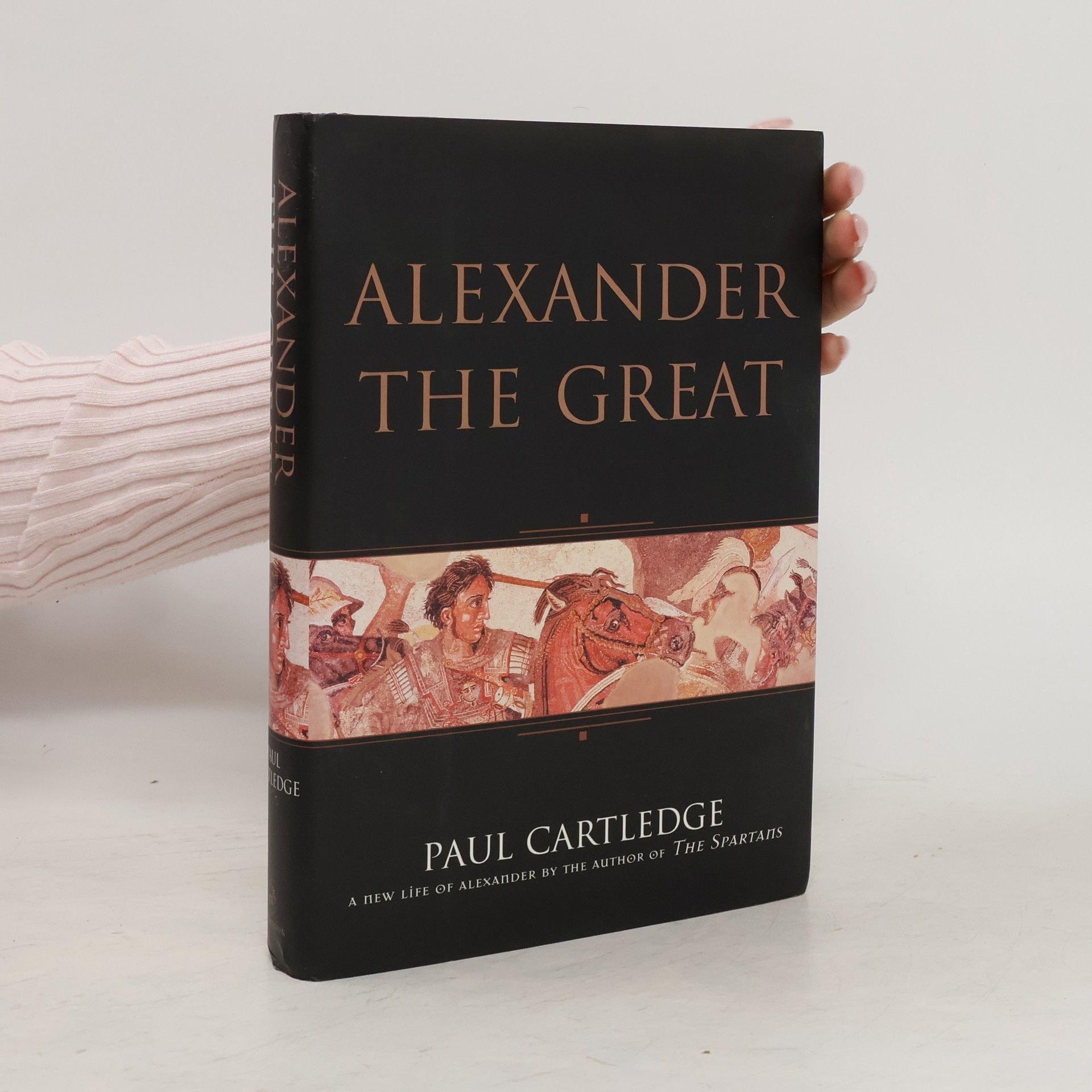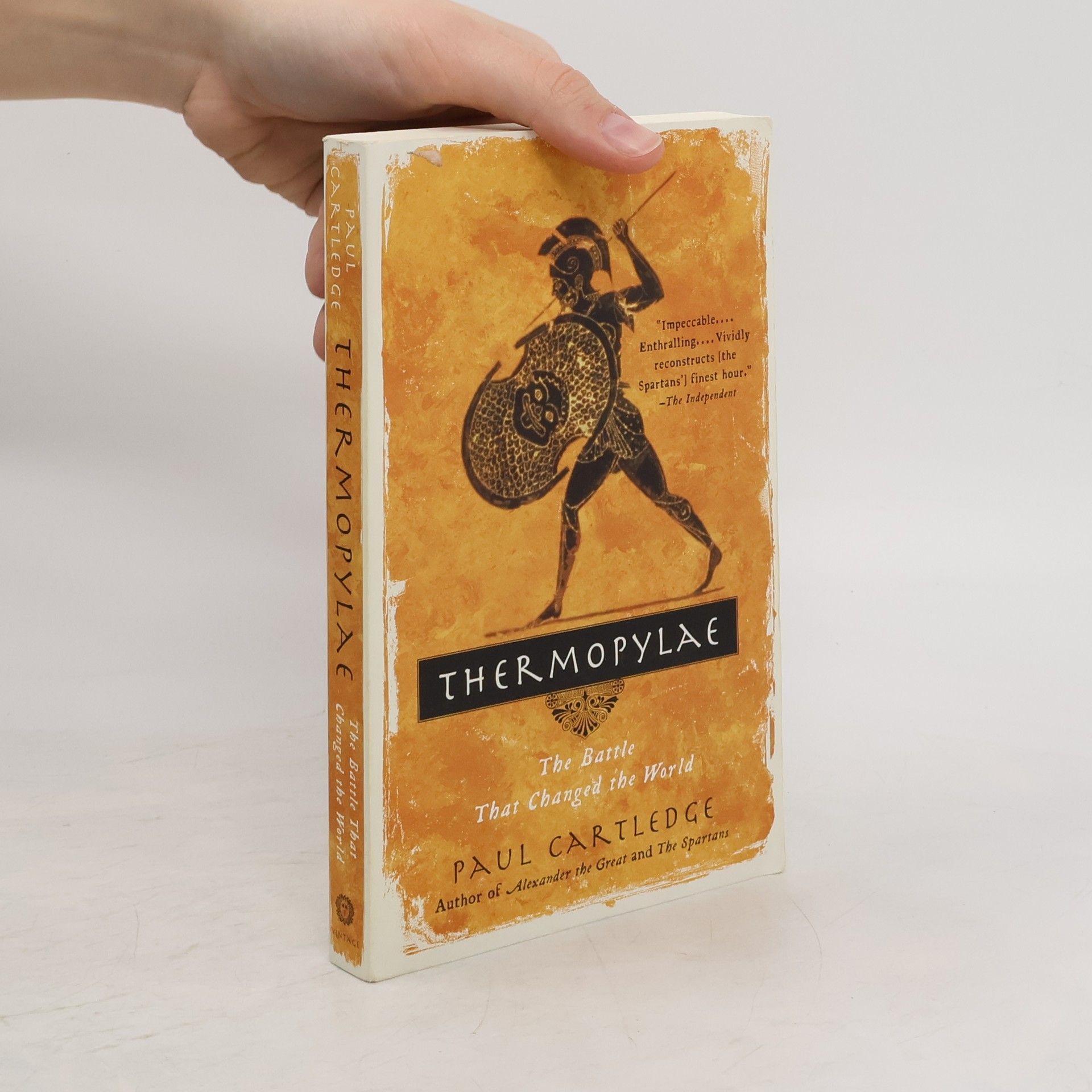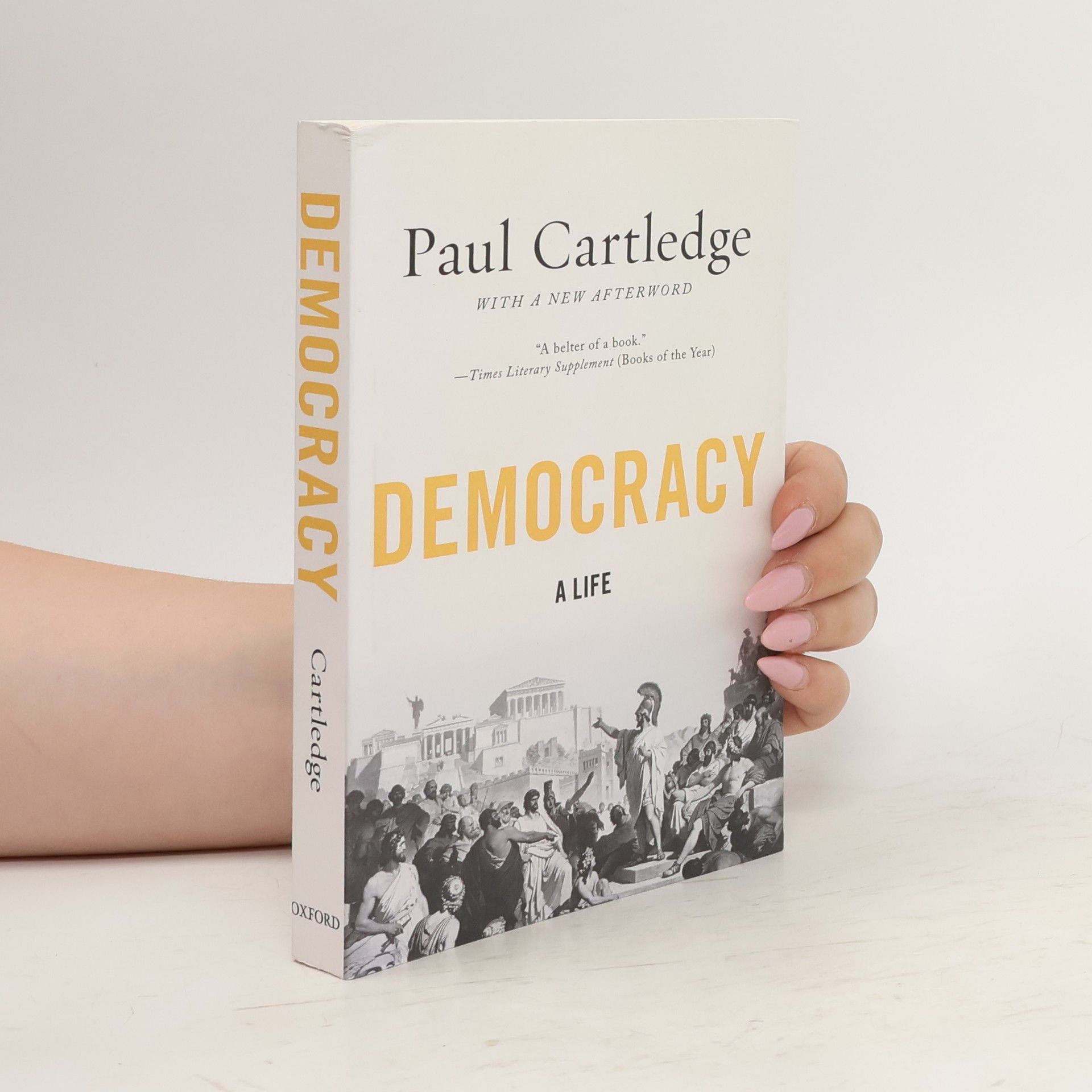Kulturgeschichte Griechenlands in der Antike
- 400 Seiten
- 14 Lesestunden
Paul Cartledge ist ein herausragender Gelehrter des antiken Griechenlands, mit einem besonderen Schwerpunkt auf dem klassischen Zeitalter Athens und Spartas. Seine umfangreiche Forschung befasst sich mit den Feinheiten dieser Gesellschaften und bietet tiefe Einblicke in ihre kulturellen und politischen Landschaften. Cartledge zeigt eine ausgeprägte Wertschätzung für die lakonische Lebensweise, die seine detaillierten historischen Analysen durchdringt. Durch seine engagierte Arbeit beleuchtet er die andauernde Bedeutung und das Erbe der antiken griechischen Zivilisation.







Exploring the evolution of political thought and practice in ancient Greece, this book delves into its development from prehistoric times through to the Roman Empire. It examines how philosophical ideas influenced governance and societal structures, offering insights into the interplay between theory and real-world application in shaping political landscapes throughout history.
"Ancient Greece first coined the concept of "democracy," yet almost every major ancient Greek thinker--from Plato and Aristotle onwards--were ambivalent or even hostile to democracy in any form. The explanation is quite simple: the elite perceived majority power as tantamount to a dictatorship of the proletariat. In ancient Greece there can be traced not only the rudiments of modern democratic society but the entire Western tradition of anti-democratic thought. In Democracy: A Life, Paul Cartledge provides a detailed history of this ancient political system. In addition, by drawing out the salient differences between ancient and modern forms of democracy he enables a richer understanding of both. Cartledge contends that there is no one "ancient Greek democracy" as pure and simple as is often believed. Democracy surveys the emergence and development of Greek politics, the invention of political theory, and-intimately connected to the latter-the birth of democracy, first at Athens in c. 500 BCE and then at its greatest flourishing in the Greek world around 350 BCE. Cartledge then traces the decline of genuinely democratic Greek institutions at the hands of the Macedonians and--subsequently and decisively--the Romans. Authoritative and accessible, Democracy: A Life will be regarded as the best account of ancient democracy and its long afterlife"-- Provided by publisher
Paul Cartledge argues that the Spartans are our ancestors, every bit as much as the Athenians. But while Athens promoted democracy, individualism, culture and society, their great rivals Sparta embodied militarism, totalitarianism, segregation and brutal repression.
The narrative details the pivotal 480 B.C. battle between King Xerxes' Persian forces and King Leonidas' Spartans, highlighting its significance in shaping modern international culture and class structures. By connecting historical events to contemporary issues, the book provides a dramatic exploration of how this ancient conflict influenced the course of European history.
Alexander's legacy has had a major impact on military tacticians, scholars, statesmen, adventurers, authors, and filmmakers. Cartledge brilliantly evokes Alexander's remarkable political and military accomplishments, cutting through the myths to show why he was such a great leader. He explores our endless fascination with Alexander and gives us insight into his charismatic leadership, his capacity for brutality, and his sophisticated grasp of international politics. Alexander the Great is an engaging portrait of a fascinating man, and a welcome balance to the myths, legends, and often skewed history that have obscured the real Alexander.
A gripping account of the ancient Greek city of Thebes from the acclaimed author of The Spartans.
In this title, Cartledge provides an account of Sparta and the Spartans, examining the evolution of their ancient society and culture, one that was significantly masculine but that allowed women an unusually dominant and powerful role.